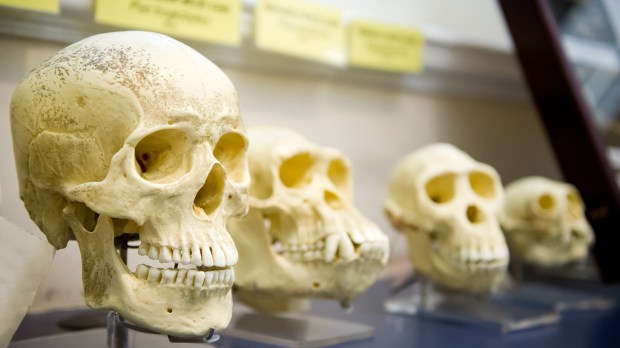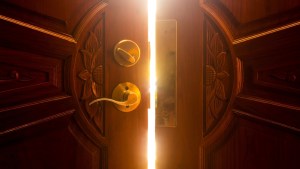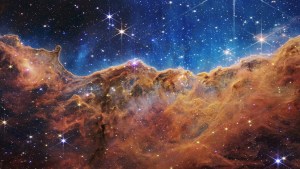A major draw of Word on Fire’s new short film series Wonder on the harmony of faith and science is the narrator—a man known, at least today, more for his face than his voice: Jonathan Roumie.
“The last piece of the puzzle that fell into place was the idea of having Jonathan Roumie do the voice over,” the director Manny Marquez explains. “When we reached out to him, and he agreed to do it, we knew these films were going to be something special.”
The Catholic actor and voice artist had been hard at work for decades on both the stage and screen when he was catapulted into the spotlight by playing Jesus in the hit series The Chosen. Roumie recently sat down with Bishop Barron to discuss his journey. “My faith is everything,” he says. “It’s my identity. And it’s grown to become more of my identity than I had ever anticipated.” He goes on to describe the experience of a “deeper conversion” while struggling to find work. Three months later, he got the call from Dallas Jenkins to collaborate on The Chosen.
Roumie’s narration shines in the opening of Episode 3, where he leads us into what will likely be the most debated theme of the whole series: evolution. After quoting the atheist Christopher Hitchens on the creation story in Genesis, Roumie declares, “For Hitchens, the biblical authors knew next to nothing of what we know today about biological or even cosmic evolution; therefore, their account was simply wrong.” Of course, for many people of faith, the incoherence runs in the other direction: evolution squares with very little of a literal understanding of Genesis; therefore, it is Darwinism, not Scripture, that must be ruled out.
What is the Catholic position on this roiled question? The Church insists on certain non-negotiables—for example, that God created the world from nothing, that he guides its natural processes, and that he directly creates every individual human soul. But within those constraints, it permits a broad range of opinions, including the embrace of evolutionary science. In fact, Pope St. John Paul II famously remarked to the Pontifical Academy of Sciences that “some new findings lead us toward the recognition of evolution as more than an hypothesis.” The complementarity of creation and evolution was echoed by both of his successors, Benedict XVI and Francis.
Wonder captures this complementarity not by entering into the weeds of the debate—an impossible task for a short film—but simply by spotlighting one of the greatest minds of the Church on the question: St. Augustine. The ancient Church Father’s brilliant analysis of Genesis “almost seems like a prophecy of future science”—one that allows for nature to work in apparently miraculous ways without immediately defaulting to God as an explanation. Without compromising the integrity of Scripture, one of the Church’s best minds made room for the integrity of creation.
Marquez notes that this episode on Augustine, in particular, impacted his own views on faith and science. “This challenged me because of the idea of evolution I had learned early in life,” he explains. “But, I always personally believed in an idea of evolution as long as it was instituted by God. Augustine was essentially saying that!” Toward the end of the episode, a Darwin’s finch of the Galapagos appears on screen, and Roumie offers this concluding remark: Augustine’s exegesis and Darwin’s science “both converge on a cosmic process that rises toward humanity as its crowning glory, and does so naturally.”
This debate will rage on, but Darwin’s dangerous idea is, at least where the Catholic Church is concerned, not so dangerous after all. Set within certain metaphysical and spiritual limits, there is as little concern about evolution as about the idea of a Big Bang 14 billion years ago—an idea originally formulated by a Belgian priest, Georges Lemaître.
“If I have created something in these films that lets the Catholic or even evangelical Christians realize that it is okay to look into science, and believe it when it is true, then we’ve achieved something,” Marquez adds. “On that same token, if we can get the atheist or the Christ-curious person to give these films a chance, they may just change some hearts and became a real path to conversion.”
The author of this essay series served as an editor on the Wonder series. Read also about Episode 1 and Episode 2.



